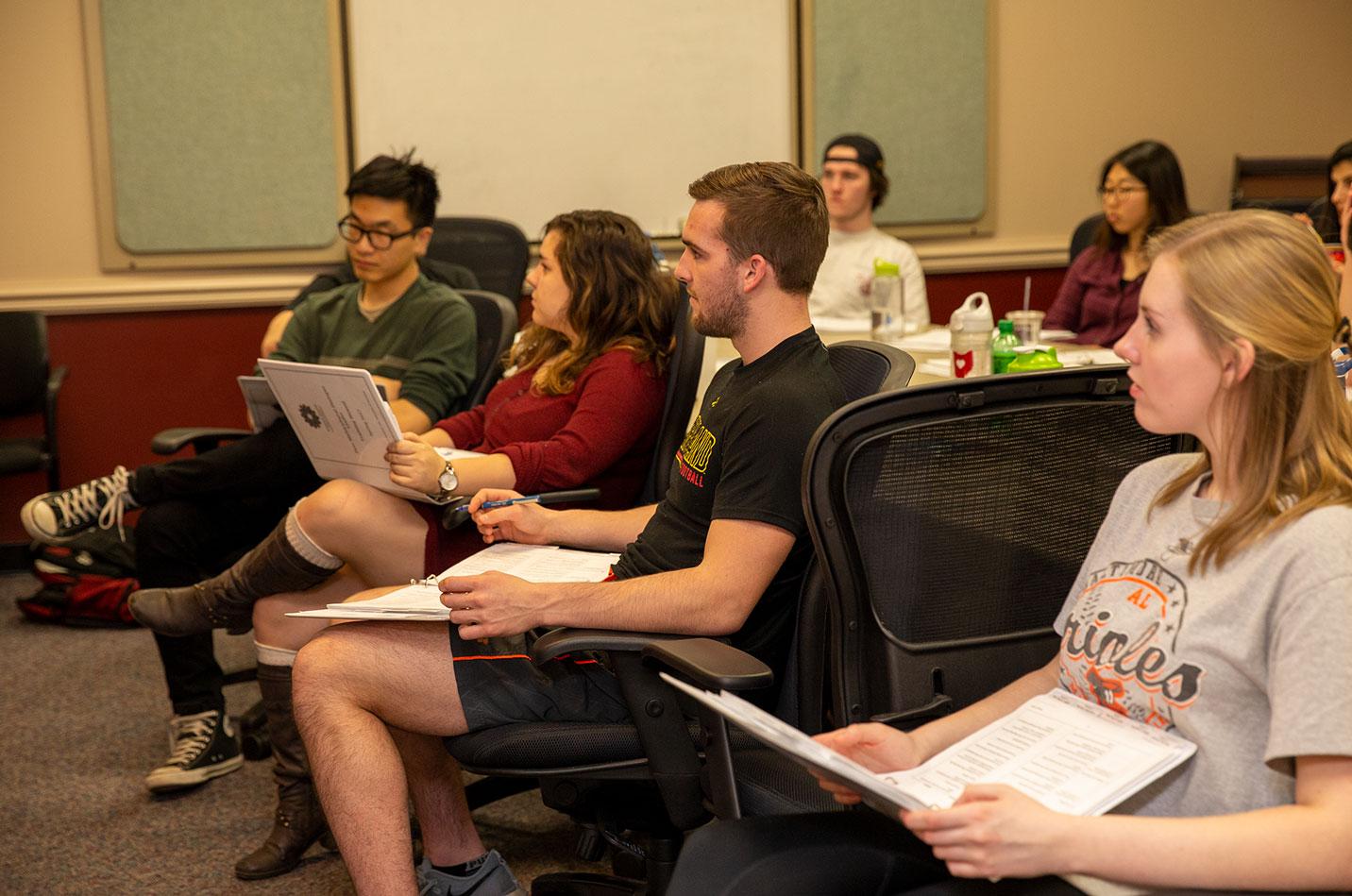Common Ground Program
The Common Ground Dialogue Program brings together groups of undergraduate students to engage in a peer-led, structured exploration of contemporary dilemmas in our society.
Key Program Characteristics

- Dialogue groups draw upon the strengths of diversity with students who hold a variety of individual identities and perspectives. This allows for multiple perspectives to be shared and for meaningful interactions across difference.
- These opportunities are inclusive of individuals with varying levels of knowledge related to the topic.
- Dialogues are peer-led by pairs of trained undergraduate Peer Dialogue Leaders.
- A respectful and inclusive climate in the dialogues encourages participants to share openly and authentically. Participants are invited to react to perspectives that are shared and how they are personally impacted by them.
Program Format Options
"Trending Topics" is a one-session dialogue that creates an opportunity for students to consider the complexities and personal meanings of a controversial issue or dilemma. These work well for students looking to process a breaking news story or event. Examples of previous topics include hate speech on campus, celebrity scandals, and the presidential election.
“Common Ground Deliberative Dialogues” (CHSE 328A) is a 1-credit course in which students engage in peer-led dialogues on compelling hot button topics that have important implications for our society. These topics often elicit strong opinions and have the potential to be divisive. A primary goal of the course is to equip students with the skills, experiences, and confidence to engage with others on difficult topics such as these. Participants drive the content of the dialogue by sharing their perspectives and ideas for addressing the topic, ultimately attempting to find areas of consensus among the group. By the end of the experience, participants should have a greater appreciation of the complexity of the topic and a better understanding of perspectives on the topic that differ from their own, building their capacity for empathy while still potentially disagreeing with certain ideas.
“Facilitator Development & Practicum” (WEID 300) is a 3-credit course designed to give students both a theoretical and practical foundation in the knowledge, skills, and awareness needed to effectively facilitate intergroup dialogues and social justice workshops on critical issues, like race, class, gender, and more. Participants in this course will learn about dialogue as a model for communicating across differences, facilitation skills as a leadership approach, group processes and dynamics, social identity development, power and oppression, and solidarity building and social action. Students who complete this training course are eligible to serve as Peer Facilitators for the Common Ground Dialogue Program and the Words of Engagement Intergroup Dialogue Program, which is a paid position.
If you have any questions or would like more information on the program, please reach out to Nikita Kimani, Coordinator for Diversity, Equity, & Inclusion at nkimani@umd.edu.
